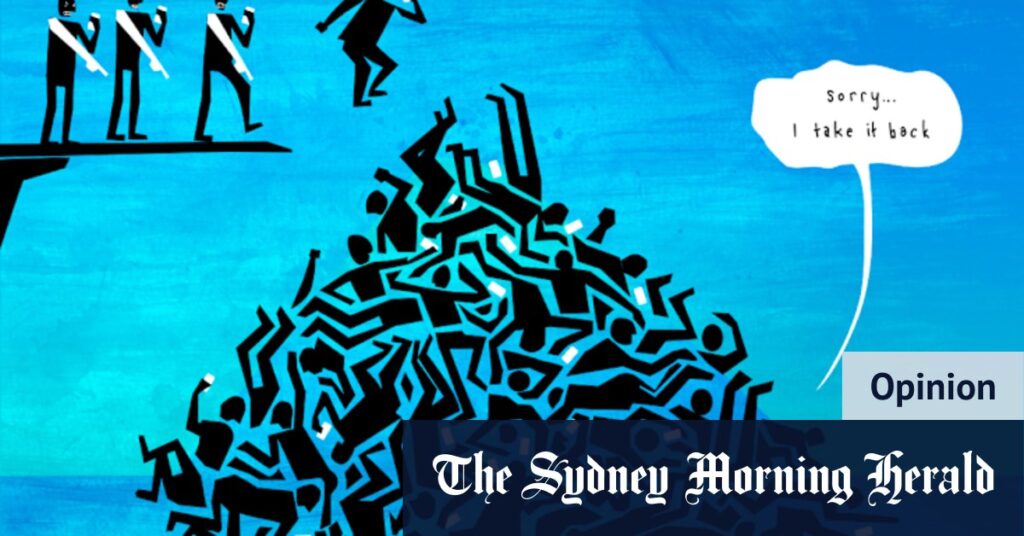
When COVID-19 shut down the world in 2020, I discovered something unsettling about myself. Despite evidence indicating that the disease was primarily dangerous for a small subset of the population vulnerable due to advanced age or other health conditions, Australia embarked on a series of lockdowns. These measures began with the least affected, as Victorian Premier Dan Andrews quickly closed schools, while NSW Premier Gladys Berejiklian hesitated but encouraged parents to keep their children home.
My husband and I knew our family faced little risk. He wanted our young child to continue attending school, but I felt compelled to align with community anxiety and opt for home-schooling. Unable to win the argument with evidence, I resorted to tears, claiming fear of the virus to sway the decision. The humiliating truth was that I feared social stigma more than the virus itself. This personal experience was a snapshot of a wider gender divide.
The Emotional Appeal and Gender Dynamics
My fears and the tactics I employed in that moment were quintessentially female. Women have been evolutionarily shaped to seek social approval and appeal to emotion in asserting themselves. This notion was echoed in a recent essay by US commentator Helen Andrews on “The Great Feminisation.” Andrews argues that as women achieve parity and outnumber men in certain professions, such as education and law, feminine social norms increasingly shape public discourse and institutional behavior.
According to Andrews, the emotional and social levers women use to achieve their desired outcomes are what we have come to know as wokeness and cancel culture. These approaches often privilege emotional responses over evidence, sometimes conflating emotion with evidence. For instance, when a court bases its findings on the credibility of a woman’s emotional response during a sexual assault trial, it can undermine centuries of legal safeguards.
“If institutions like the law become overly feminised, then judges will bend the rules for favoured groups and enforce them rigorously on disfavoured groups,” Andrews warns.
Historical Parallels and the Rule of Law
The classic fictional rendering of such a situation is the novel To Kill a Mockingbird, inspired by real events. In the racially charged American South, a white woman falsely accuses a black man of rape. The all-white jury, predisposed against the accused, values the woman’s tears over the evidence, leading to the man’s conviction. The dispassionate rule of law, requiring concrete evidence to secure a conviction, is designed to protect against such injustices.
Evolutionarily, women’s emotional appeal for protection was a useful safeguard against men’s superior physical strength. However, in a cerebral world where both genders can marshal facts equally, this trait has the potential to be toxic. Cancel culture, Andrews argues, is another feminine way of managing conflict, rooted in evolutionary strategies. Social ostracisation, a non-violent form of aggression, affects the brain similarly to physical pain and can lead to long-term ill-health and depression.
Implications for Society and Institutions
Wokeness and cancel culture have changed business and public life, potentially due to the increasing number of women in institutions. Andrews posits that a “feminised” society predominantly run by emotion and ostracisation would be far from ideal. She questions the value of academia, journalism, and business if they lose their objective pursuit of truth and become inward-focused bureaucracies.
“If your academia doesn’t pursue truth, what good is it? If your journalists aren’t prickly individualists who don’t mind alienating people, what good are they?” Andrews asks.
Yet, it is concerning that Andrews fuels a new gender war based on this mania, as manias are not a historical anomaly. Humanity has experienced collective madness before, often led by men. The patriarchal Aztec society’s human sacrifices and the male-led Holocaust against Jews are stark reminders. The lesson from woke and cancel culture should be learned without pitting men and women against each other.
Moving Forward: Balancing Gender Dynamics
If the cause of the mania is a feminine way of operating, the argument in favor of the rule of law needs to be made with equal emotional power. Social justice should not dismantle objective fairness but guarantee it. The shame of ostracisation should accrue to the bully, not the victim. A gender-equal society will not necessarily be a kinder one, as women have never been the gentler sex. We simply manage conflict differently—less violently, but no less ruthlessly.
As always with Helen Andrews, whom I count as a friend, her essay is excellent and the argument has merit. Male energy is as vital to society as feminine energy. Now that women are empowered, it’s time to stop making it “illegal for women to lose.” However, as clickbait, this narrative is creeping unchallenged into our timelines, eliciting emotional resonance where a rational approach is needed to manage the destructive potential of another social mania.
What an ironically female way to declare war on the great feminisation.
Parnell Palme McGuinness is managing director at campaigns firm Agenda C. She has done work for the Liberal Party and the German Greens and is a senior fellow at the Centre for Independent Studies.
Get a weekly wrap of views that will challenge, champion, and inform your own. Sign up for our Opinion newsletter.






